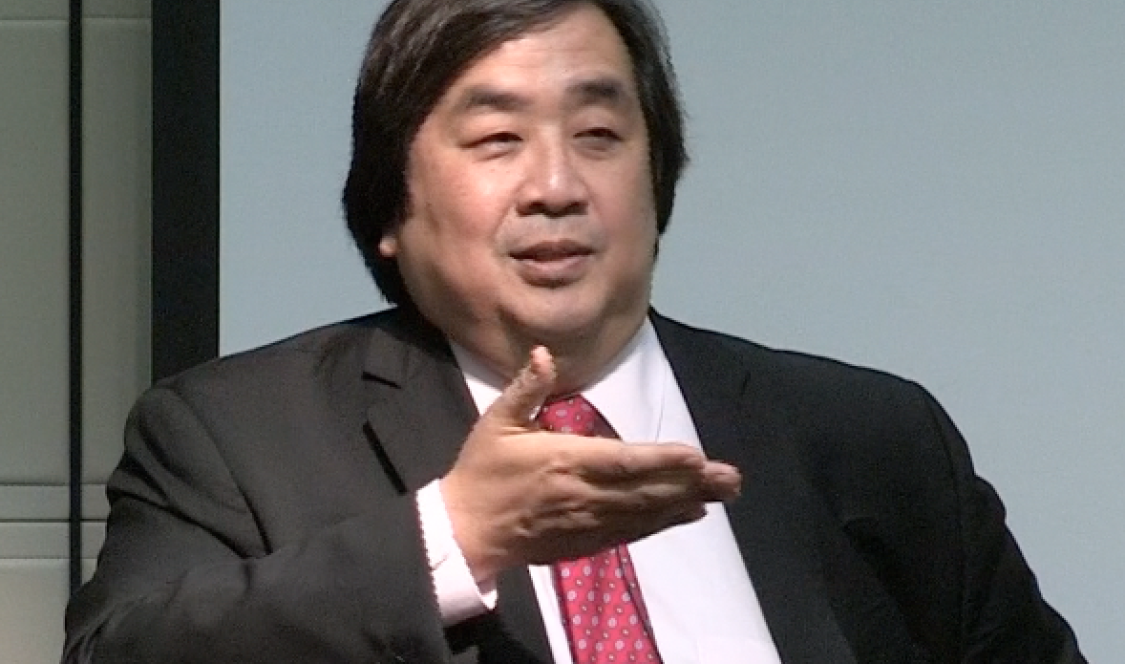Yale Law School professor and former legal advisor to the State Department, Harold Koh, spoke at the Athenaeum October 8, on “Is there an Clinton-Obama Doctrine?” The talk was part of President Chodosh’s inaugural “Liberal Arts in Action” speaker series.
Koh, who was Legal Advisor of the Department of State, 2009-2013, discussed what it was like being a government lawyer and outlined some misconceptions. He discussed working as one of former Secretary of State Hillary Clinton’s legal advisors in the State Department.
Koh discussed his experience as a government lawyer and some misconceptions about the role.
“You are not the only lawyer,” he said. Indeed, there are thousands of attorney’s that work for the U.S. government. For every position, according to Koh, there are thousands of lawyers that need to agree.
Also, it was his job to tell the Secretary of State if what she wanted to do was legal. “You can’t do or say whatever you want because you’re not you own client,” he said.
Also, as a government lawyer “You must play the hand you’re dealt.” Three wars, the worst financial crisis in modern times, Wikileaks, and “the worst political environment anyone can remember” were among the challenges that Koh faced in office.
Finally, he said: “You play many roles.” Koh managed over 200 lawyers at the State Department. He also served as General Counsel, managed conflicts within the Department, was the legal advisor and spokesman for any legal issues affecting the State Department, where he defended the department on a range of issues.
Moving on to the main topic of his talk, Koh asked: “Do we have a strategy to adapt 20th Century law to 21st Century problems? Another way to put this is: ‘Is there an Obama-Clinton Doctrine?’”
“I want to argue that there is a strategy,” said Koh. “It may not be perfectly executed in every case. It may not always work. But there is one, and I call it ‘international law as smart power”-- engage, translate and leverage.”
On the first point-- ‘engage,’ Koh said, on any issue “America can do nothing or it can engage, try to address the problem, engage around our values.”
On the second point-- ‘translate,’ Koh said there are many situations where 20th Century law has not anticipated where the technology is in the 21st Century.
“Most of our foundational international law was made after World War II, most of our national security law after Vietnam and Watergate. They are anywhere from 40 to 60 years old. They are not adapted to current problems.”
According to Koh, this situation gives us two choices. One he calls “black hole,” characterized by the statement: ‘There is no law that applies to this problem, so we can do whatever we want.’ The other possibility is what Montesquieu calls the ‘spirit of the laws.’ “Try to apply the spirit of the laws as they are written, to 21st Century challenges,” said Koh.
Koh argues this is one of the biggest differences between the Obama administration and its predecessor. The Obama Administration applies the spirit of laws while the Bush Administration often took the “black hole” approach, as when Bush’s attorney general Alberto Gonzalez said “the Geneva Conventions were ‘quaint.’ Therefore, they must not be applicable.”
On his final point defining international law as smart power, Koh described ‘leverage’ as blending law with other tools to produce policy.
“The United States is an important power, but it can’t go it alone. It doesn’t have unlimited resources. “ This is another distinction Koh drew between the Bush and Obama administrations. Bush took the “go it alone” or “hard power strategy” while Obama normally pursues the latter, which Koh calls the “smart power strategy”
The smart power strategy was illustrated by the actions of President Obama and former Secretary of State Hillary Clinton in this way: “Engage with our allies, translate legal rules to new setting on targeting and retention, combine limited uses of force with other tools like diplomacy, development and cooperative law enforcement to try to build broader sets of relations with the people of the Middle East.” Although, Koh remarks that Obama appeared to deviate from this approach in his threats of military intervention in Syria recently.
Professor Harold Koh is one of the country’s leading experts in public and private international law, national security law, and human rights. On the academic side, he served as the Dean of Yale Law School from 2004 to 2009, has authored or co-authored eight books, and published over 180 articles.
Koh has also had a distinguished career in government and international relations. From 1998 to 2001, Koh served as the U.S Assistant Secretary of State for Democracy, Human Rights and Labor, and from 2009 to 2013 he left Yale to serve as Legal Adviser to the State Department. Koh has testified regularly before Congress, and litigated numerous cases involving international law issues in both U.S. and international tribunals.
For his groundbreaking work, he has received thirteen honorary degrees and more than thirty awards for his human rights work, including awards from Columbia Law School and the American Bar Association. He is a Fellow of the American Philosophical Society and the American Academy of Arts and Sciences, an Honorary Fellow of Magdalen College, Oxford, and a member of the Council of the American Law Institute.

